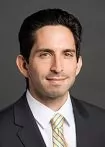2016 was an active year in securities litigation. In the first half of 2016 alone, plaintiffs filed 119 new federal class action securities cases.1 It was also a busy year for SEC enforcement proceedings, with a record 868 cases filed, 548 of which were independent enforcement actions (as opposed to follow-up actions or cases based on delinquent regulatory filings).2 This continued the trend of growth in SEC enforcement activity, as independent actions have increased by nearly 61% since 2013.3 Amid this activity, there were a number of important legal and regulatory developments, including in the following areas:
- Insider Trading: In its first major insider trading case in 19 years, the Supreme Court clarified that a gift of confidential information to a tippee who is a trading relative or friend may be sufficient to support insider trading liability.
- Securities Fraud and Class Actions: The Second Circuit (and district courts in that Circuit) held that statements of opinion that allegedly failed to disclose facts potentially undermining the opinion did not necessarily constitute actionable misstatements; adopted the "ultimate authority" theory of liability for purposes of determining the "maker" of alleged misrepresentations; recognized an inflation-maintenance theory of loss causation in Section 10(b) actions; recognized that the fraud-on-the-market presumption applies in individual actions; and held there is not necessarily a duty to disclose developments in SEC investigations. The Eighth Circuit held that the fraud-on-the-market presumption may be rebutted during the class certification stage with evidence of no front-end price impact as a result of an alleged misstatement.
- Jurisdiction: The Supreme Court clarified when federal courts have jurisdiction over state law claims that raise questions involving the Securities Exchange Act of 1934 (the "Exchange Act").
- SEC Enforcement and Regulation: The Ninth Circuit held that the Securities and Exchange Commission ("SEC") may assert causes of action against CEOs and CFOs who provide false certifications under Rule 13a-14. The Eleventh Circuit clarified the statute of limitations for SEC "forward-looking" claims. A number of circuits disagreed with the Tenth Circuit as to whether the current method of appointing SEC Administrative Law Judges ("ALJs") is unconstitutional, setting up possible Supreme Court review. The SEC, meanwhile, amended the rules of procedure for administrative proceedings, brought enforcement actions aimed at protecting whistleblowers and scrutinizing the procedures followed by outside auditors, and issued Compliance & Disclosure Interpretations for the pay ratio disclosure rule under Regulation S-K.
- Consumer Financial Protection Bureau: The D.C. Circuit held that the Consumer Financial Protection Bureau's structure as an unchecked, single-director independent agency violates Article II of the Constitution.
To view the article in full click here





